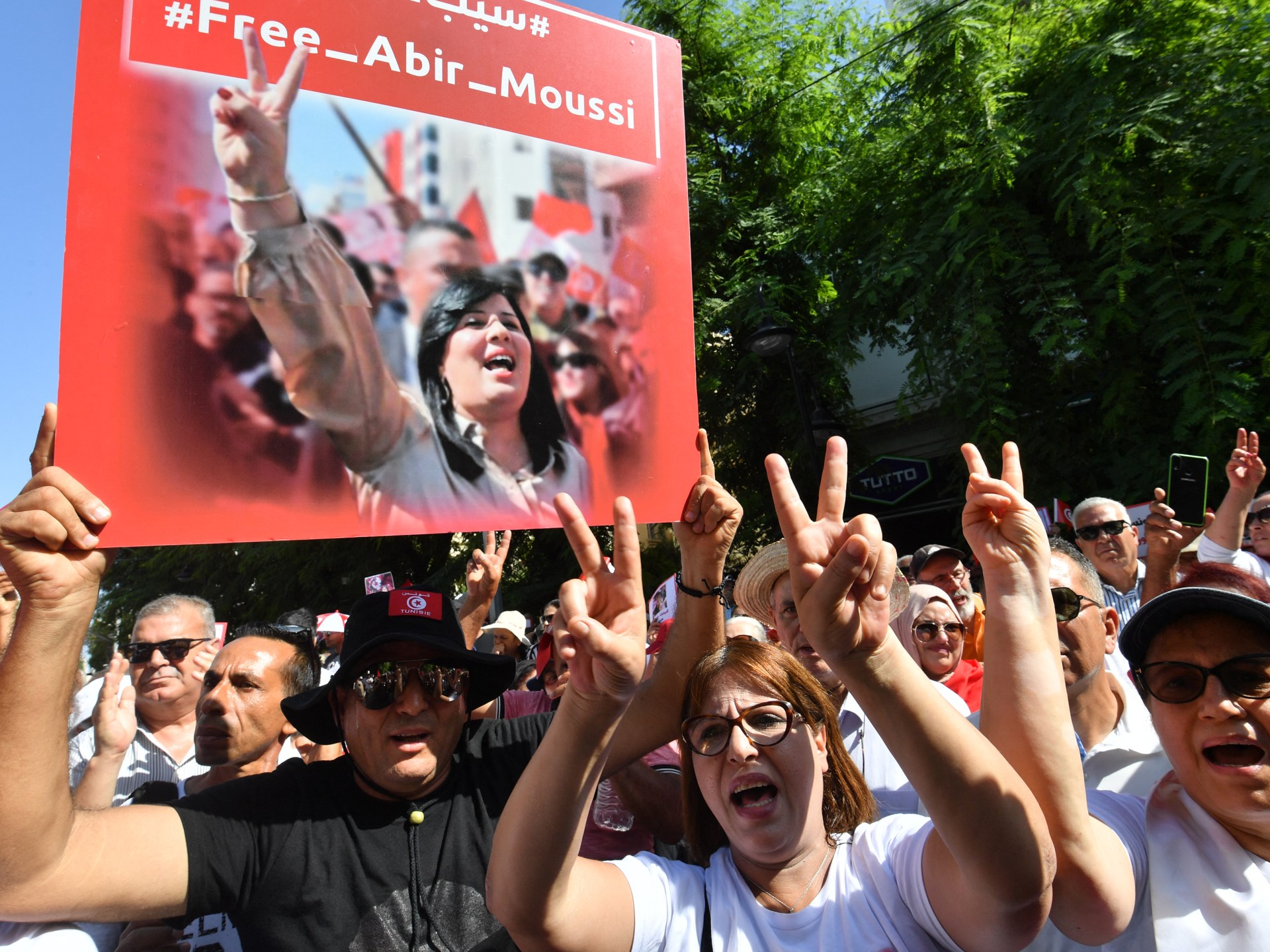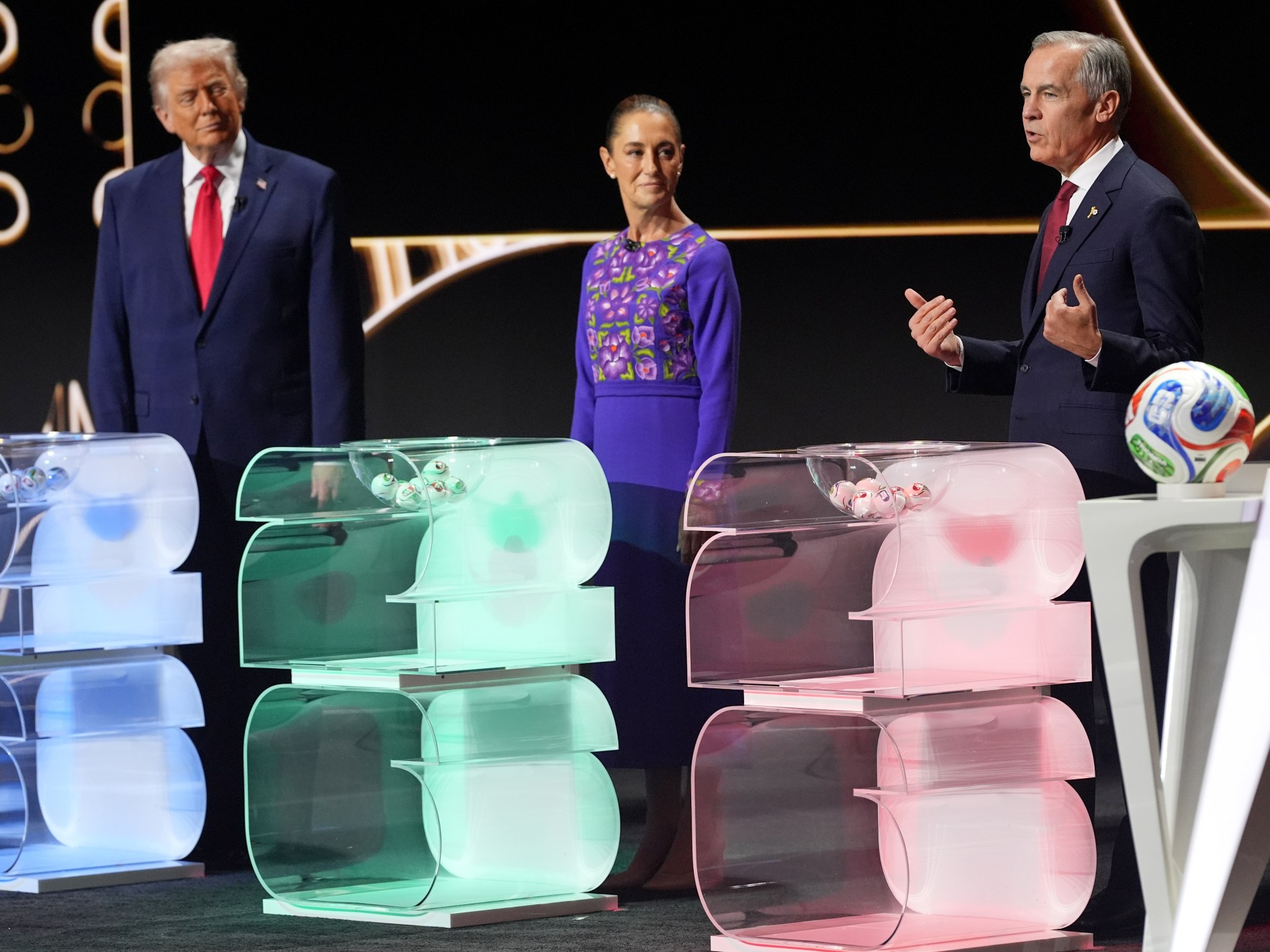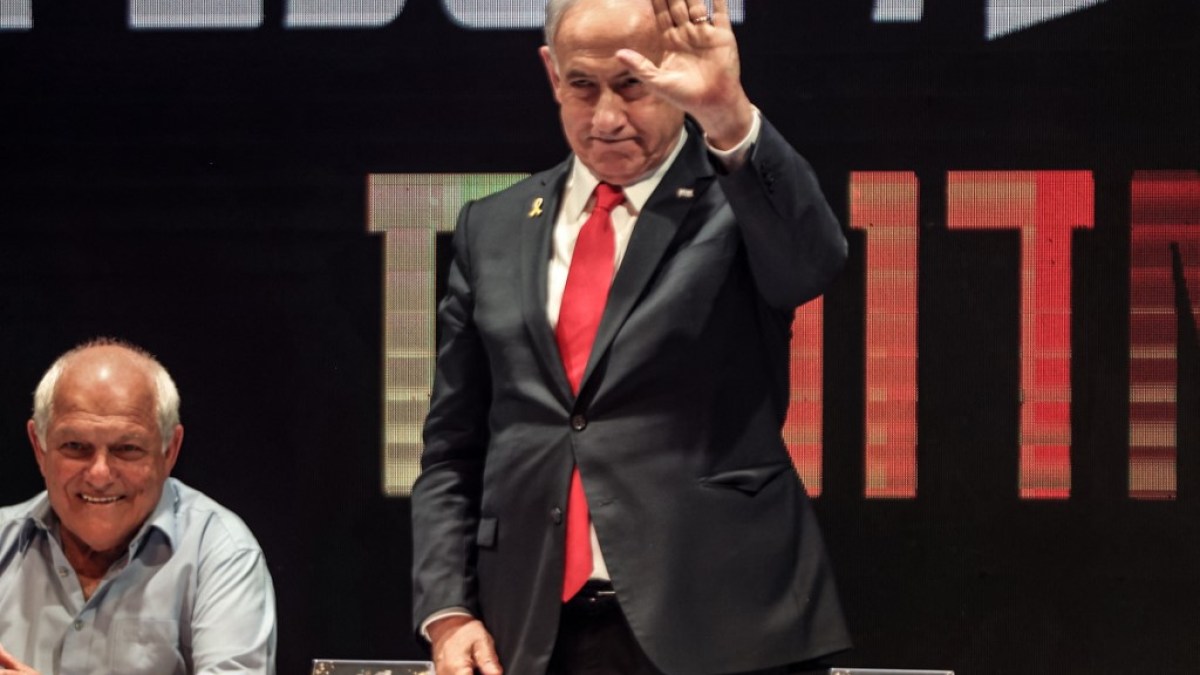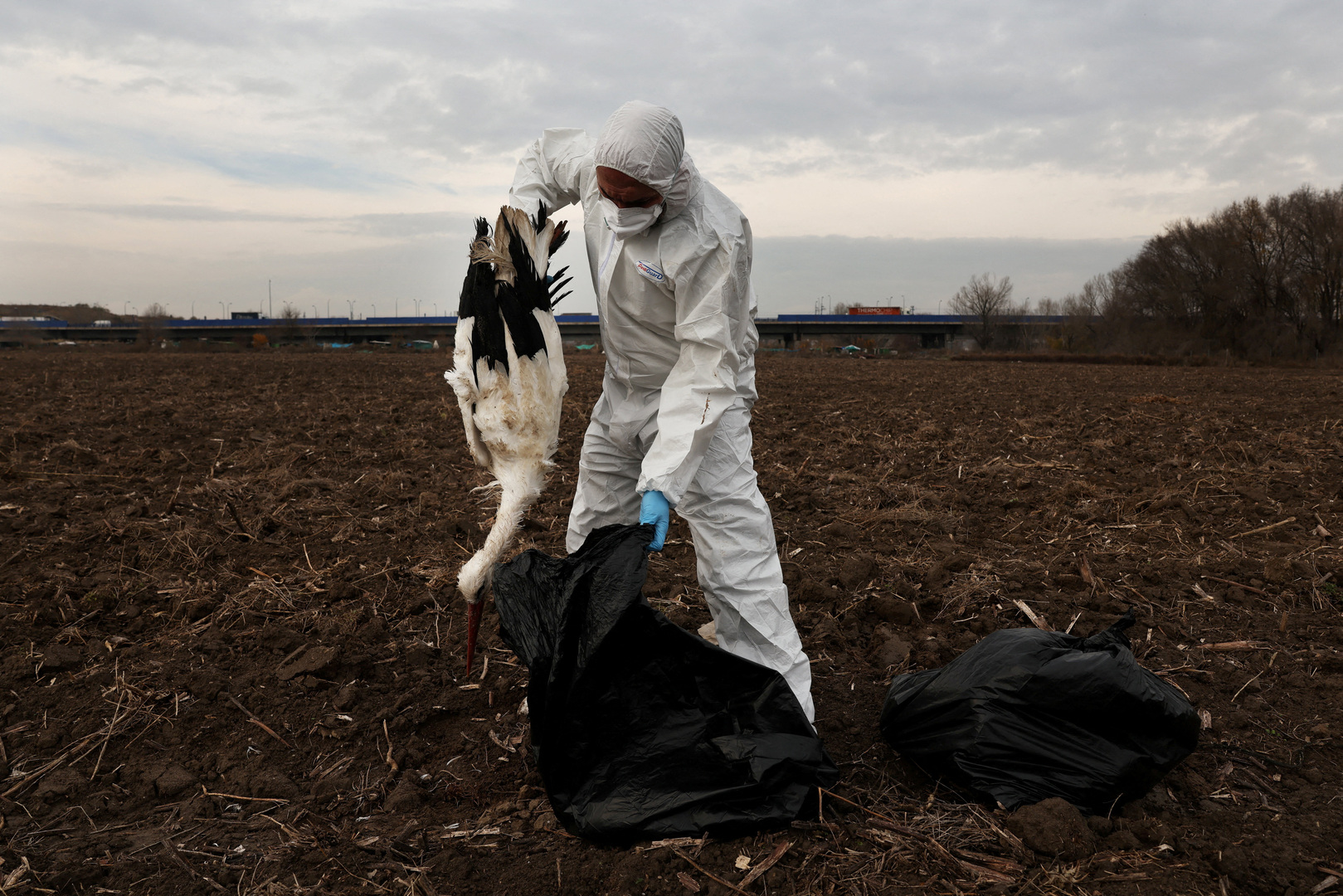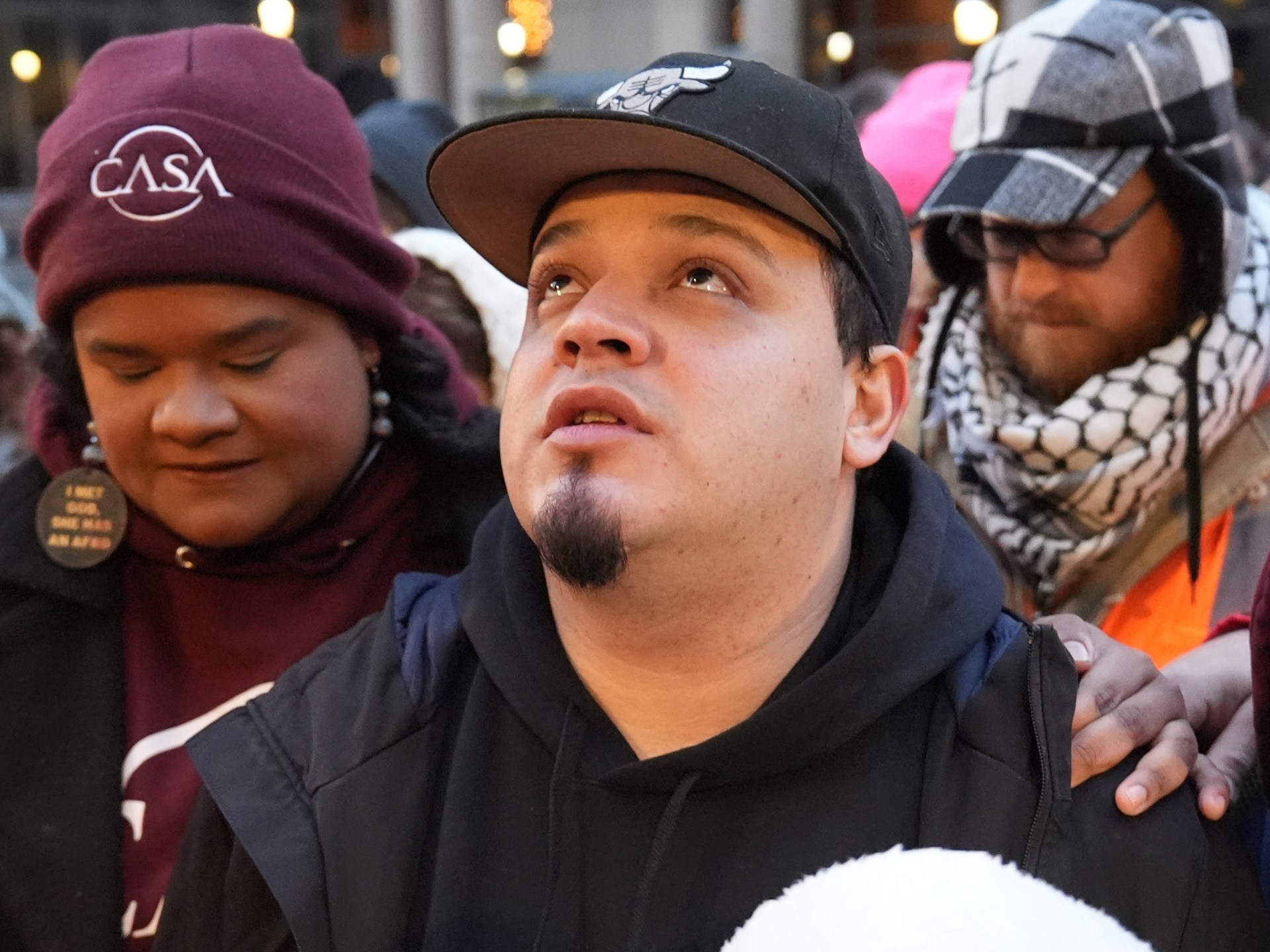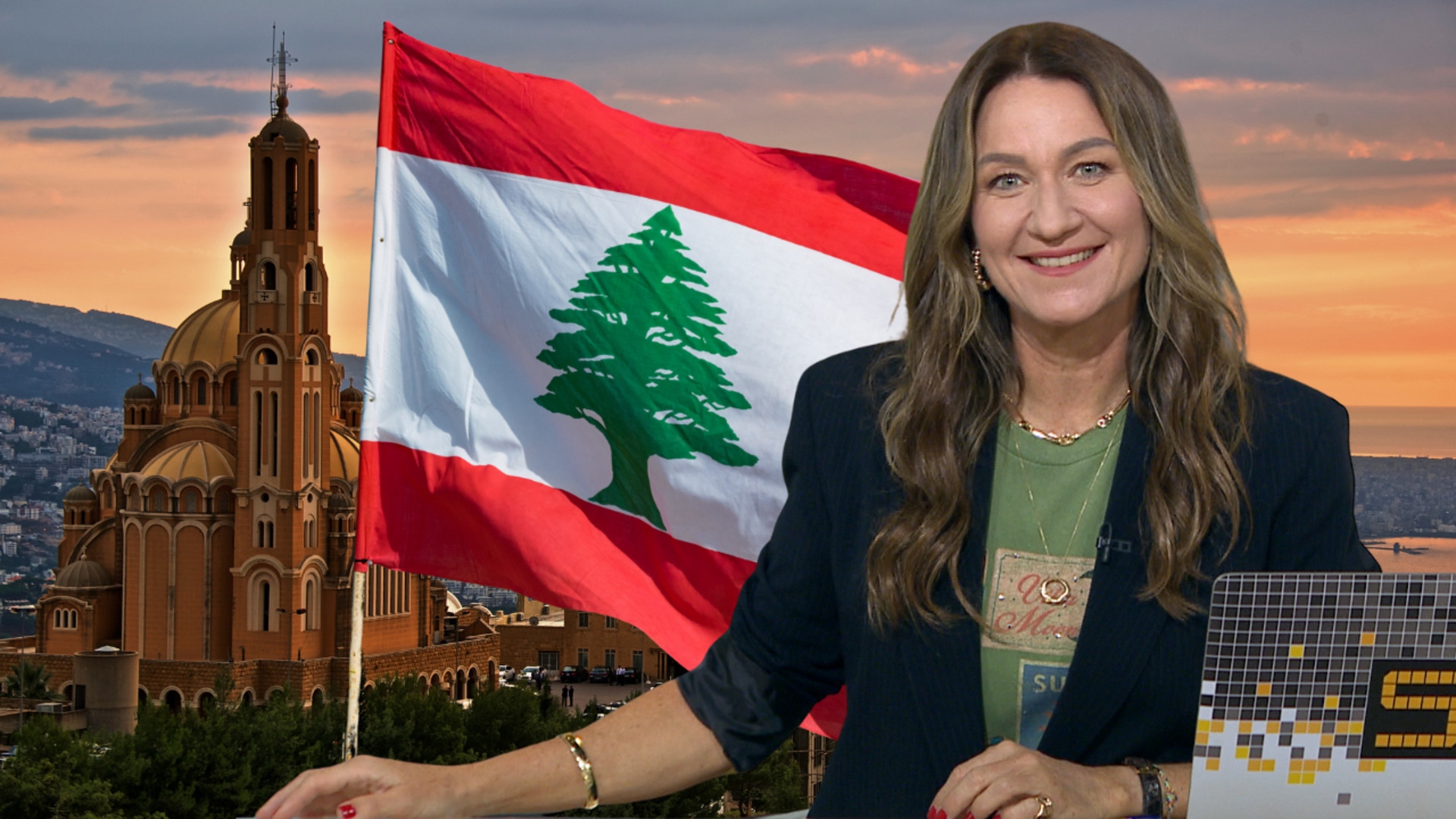Monterrey, Mexico – In April, Mexican President Claudia Sheinbaum announced the country’s aerospace industry could see sustained annual growth of as much as 15 percent over the next four years, and attributed the sector’s expansion to a robust local manufacturing workforce, increasing exports, and a strong presence of foreign companies.
But with the review of the United States-Mexico-Canada Agreement (USMCA) coming up – the free-trade treaty between the three countries that helped Mexico’s aerospace sector to grow and flourish – the industry’s future is no longer certain.
Recommended Stories
list of 4 itemsend of list
Stakeholders warn that ensuring investment stability and strengthening labour standards are essential to protecting the sector’s North American supply chain.
Mexico is striving to become one of the top 10 countries in aerospace production value, a goal outlined in Plan Mexico, the country’s strategic initiative to enhance global competitiveness in key sectors.
As the sixth-largest supplier of aerospace parts to the US, the industry has benefited significantly from the USMCA, which fostered regional supply chain integration, said Monica Lugo, director of institutional relations at the consulting firm PRODENSA.
However, the integration is no guarantee of business continuing to grow as the country is at an “unprecedented moment” with US President Donald Trump and his wide-ranging tariff policies.
Lugo, a former USMCA negotiator, said that recent tariffs on materials like steel and aluminium — critical to the aerospace sector— have eroded trust in the US as a reliable partner. She predicts that if current conditions continue, the sector risks losing capital, investments and jobs.
“Having this great uncertainty – one day it’s on, the next it’s off, who knows tomorrow – and based on no specific criteria, but rather on the president’s mood, creates chaos and severely damages the country and the economy,” she said.
On December 4, Trump suggested the US might let the USMCA expire next year, or negotiate a new deal. This follows comments by US Trade Representative Jamieson Greer to US news outlet Politico that the administration is considering separate deals with Canada and Mexico.
A booming aerospace sector
The Mexican aerospace market is valued at $11.2bn, and is expected to more than double to $22.7bn by 2029, Sheinbaum said, citing data from the Mexican Aerospace Industry Federation (FEMIA). Home to global companies like Bombardier, Safran, Airbus, and Honeywell, Mexico has established itself as a key player in the global aerospace market and is now the world’s twelfth-largest exporter of aerospace components.
Marco Antonio Del Prete, secretary of sustainable development in Queretaro, attributes this success in part to heavy investment in education and training. In 2005, the Queretaro government promised Canada’s Bombardier that it would invest in education and set up the Aeronautical University, which now offers programmes ranging from technical diplomas to master’s degrees in aerospace manufacturing and engineering.
“Since Bombardier’s arrival, an educational and training system was created that allows us to develop talent in a very efficient way, let’s say, fast track,” Del Prete told Al Jazeera.
Bombardier has served as an anchor, propelling Queretaro’s rise as a high-skilled manufacturing hub for parts and components.
While the Bombardier plant in Queretaro originally focused on wiring harnesses, it has evolved to specialise in complex aerostructures, including the rear fuselage for the Global 7500, Bombardier’s ultra-long-range business jet, and key components for the Challenger 3500, the mid-sized business jet.
Marco Antonio Carrillo, a research professor at the Autonomous University of Queretaro (UAQ), pointed out that the area’s wide educational offerings have cultivated a powerful workforce, which has gained significant attention from aeroplane makers, mainly from the US, Canada and France.
“This development [of Queretaro] has been, if you look at it in terms of time, truly explosive,” Carrillo said.
Mexico also aims to join France and the US as the third country capable of fully assembling an engine for Safran.
But the International Association of Machinists and Aerospace Workers (IAM) Union, which represents more than 600,000 workers in Canada and the US, is worried that progress could lead to more advanced manufacturing and assembly work to eventually shift to Mexico, given the local investment in aeronautical universities and training.
“Right now they’re [Mexican workers] doing more entry-level type things, but our concern is that later on, larger pieces of the aerospace operation will go to Mexico,” Peter Greenberg, the IAM’s international affairs director, told Al Jazeera.
High-skilled, low-cost workforce
Of the three countries in the USMCA agreement, Mexico’s biggest attraction has been its low-cost manufacturing.
Edgar Buendia and Mario Duran Bustamante, economics professors at the Rosario Castellanos National University, cite Mexico’s low labour costs and geographical proximity to the US as the country’s key advantages. This is partly why the US has intensified pressure on the Mexican government, including during the initial USMCA negotiations in 2017, to raise wages to level the playing field and reduce unfair competition.
“Most US companies have incentives to move their production here in Mexico, given the [low] wages and the geographic location. So, to prevent that from happening, the United States is pressuring Mexico to raise labour standards, ensure freedom of association, and improve working conditions,” Buendia told Al Jazeera, things that will benefit Mexican workers even as employer-dominated labour groups worry that they may lose their advantage.
The IAM originally opposed the USMCA’s predecessor, NAFTA. Greenberg said that while they acknowledge USMCA will continue, US and Canadian workers “would probably be perfectly happy” if the agreement ended as the NAFTA deal had led to plants being shuttered and workers being laid off as jobs moved from the US and Canada to low-cost Mexico.
“There is a need for stronger incentives to keep work in the United States and Canada. We want to see the wages in Mexico go up so that it doesn’t become automatically a place where companies go to because they know they will have lower wages and workers who do not have any bargaining power or strong units,” Greenberg added.
Under Sheinbaum’s Morena party, Mexico has raised the minimum wage from 88 pesos ($4.82) in 2018 to 278.8 pesos ($15.30) in 2025, with the rate in municipalities bordering the US reaching 419.88 pesos ($23). On December 4, Sheinbaum announced a 13 percent rise in the minimum wage — and 5 percent for the border zone— set to begin in January 2026.
Despite these increases and the competitiveness of wages in the aerospace sector, researchers agree that a significant wage gap persists between Mexican workers and their US and Canadian counterparts.
“The wage gap is definitely abysmal,” said Javier Salinas, a scholar at the UAQ Labor Center, specialising in labour relations in the aerospace industry. “The [aerospace] industry average is between 402 [Mexican pesos] and 606, with the highest daily wage being 815. [But] 815, converted to US dollars, is less than $40 for a single workday.”
By contrast, Salinas estimates that a worker in the US earns an average of about 5,500 pesos, or $300, per day.
‘Protection unions’
The USMCA required Mexico to end “protection unions”, a longstanding practice where companies sign agreements with corrupt union leaders — known as “sindicatos charros” — without the workers’ knowledge. This system has been used to prevent authentic union organising, as these sindicatos often serve the interests of the company and government authorities rather than the workers.
Salinas argues that despite the 2019 labour reform, it remains difficult for independent unions to emerge. Meanwhile, “protection unions” continue to keep wages low to maintain competitiveness.
“But imagine, a competitiveness based on precarious or impoverished working conditions. I don’t think that’s the way forward,” Salinas said.
Even with new labour courts and laws mandating collective bargaining, organising in Mexico remains dangerous. Workers attempting to create independent unions frequently face firing, threats, or being blacklisted by companies.
Humberto Huitron, a lawyer specialising in collective labour law and trade unionism, explains that Mexican workers, including in the aerospace sector, often lack effective representation. “There’s discrimination during hiring or recruitment. They don’t hire workers who are dismissed for union activism,” he said.
Beyond demanding that Mexico enforce its labour reform, the IAM is calling for the expansion and strengthening of the Rapid Response Mechanism (RRM), which allows the US to take action against factories if they fail to uphold freedom of association and collective bargaining rights.
While not in the aerospace sector, the US recently invoked the RRM against a wine producer in Queretaro. Previous such actions in the state had been limited to the automotive sector.
“No one knows exactly what is going on in all of the factories in Mexico,” Greenberg said.
According to FEMIA, there are 386 aerospace companies operating in 19 states. These include 370 specialised plants that generate 50,000 direct jobs and 190,000 indirect jobs.
Del Prete, however, assured Al Jazeera that, in Queretaro, unions are independent and “they have their own organisation.”
